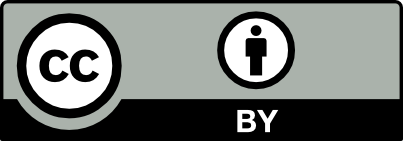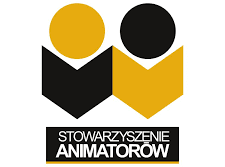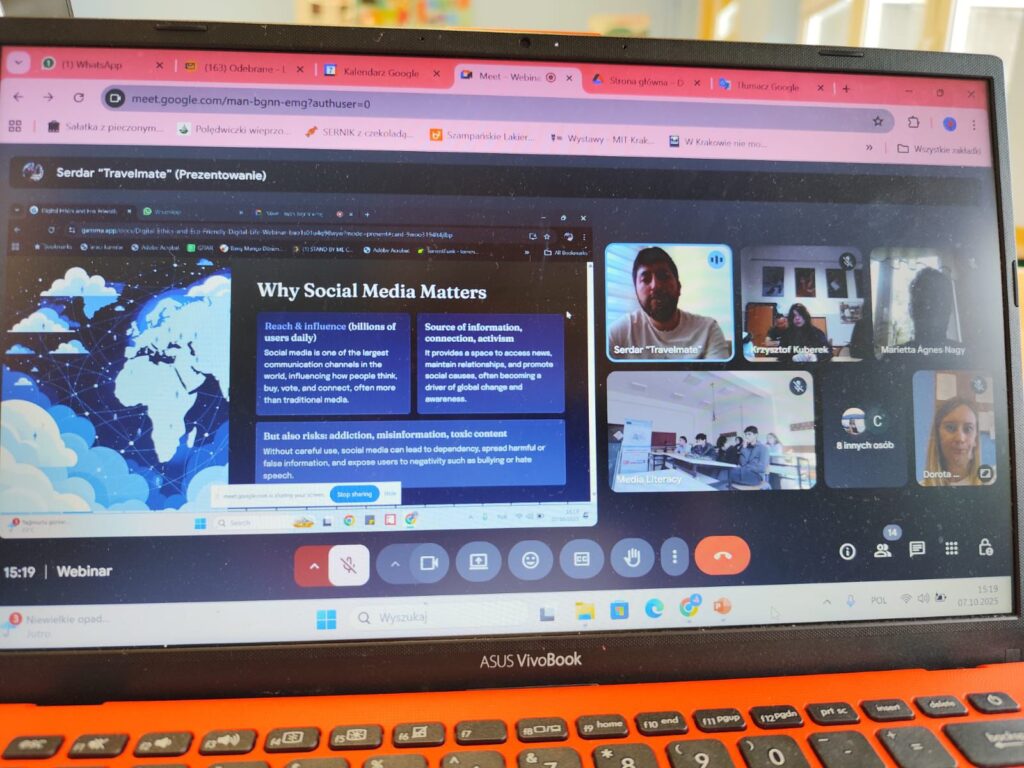
Activity Report: Digital Ethics and Eco-Friendly Digital Life Webinar
Activity Title: Digital Ethics and Eco-Friendly Digital Life Webinar
Venue: Virtual (Online Platform)
Dates: 07/10/2025 – 08/10/2025
Leading Organisation: Stowarzyszenie Animatorów Wszechstronnego Rozwoju Młodzieży (Poland)
Participating Organisations:
Jurisich Miklós Gimnázium és Kollégium (Hungary)
Organisme de gestion du lycée privé Bahuet (France)
Cumhuriyet Mesleki ve Teknik Anadolu Lisesi (Türkiye)
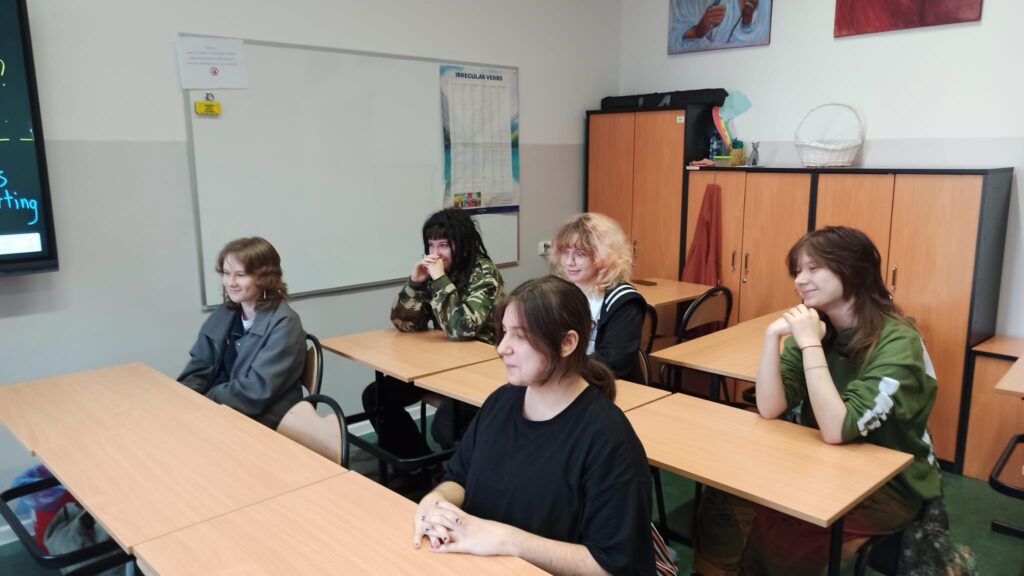
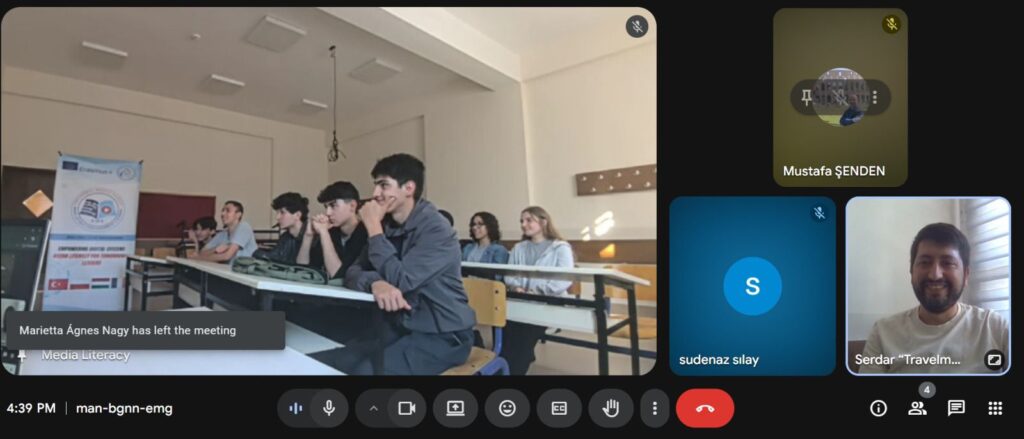
- Overview of the Activity
The Digital Ethics and Eco-Friendly Digital Life Webinar was successfully conducted as part of the Erasmus+ project “Cultural Exchange Events: Promoting Global Perspectives on Digital Citizenship.”
This two-day virtual event gathered teachers and students from all partner schools to explore two essential dimensions of digital citizenship: ethical digital behavior and eco-friendly use of technology.
The sessions were scheduled in the afternoon to accommodate different time zones and maximize participation from all partner countries.
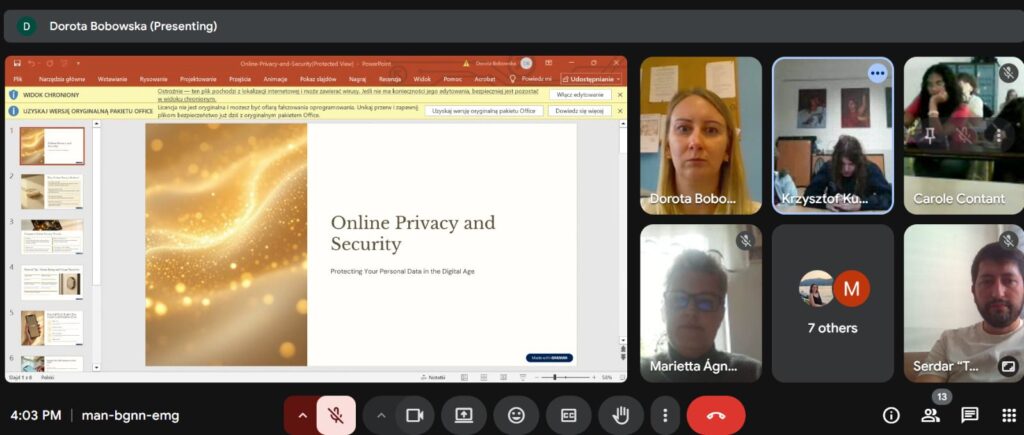
- Daily Program and Activities
Day 1 – Digital Ethics
The first day focused on understanding ethical dimensions of online behavior and responsible social media use.
14:00–15:00 – Online Privacy and Security:
Participants discussed data protection, personal information safety, and strategies for maintaining online privacy.
15:00–15:30 – Cyberbullying Prevention:
Teachers guided discussions on recognizing, preventing, and responding to online harassment with empathy and respect.
15:30–17:00 – Responsible Social Media Use:
Students explored how to use social media positively—avoiding hate speech, fake news, and excessive screen time.
The discussion also included online disinformation, media bias, and the impact of social media on democracy and public opinion.
Case studies and examples from current media contexts were used to make the session practical and relevant.
Day 2 – Eco-Friendly Digital Life
The second day was devoted to sustainability and environmentally conscious technology use.
14:00–15:00 – Digital Technology and the Environment:
Presentations and discussions highlighted how the production, use, and disposal of digital devices affect the planet.
Participants brainstormed ideas for reducing e-waste and conserving energy in their digital habits.
15:30–17:00 – Eco-Friendly Digital Habits and Cultural Reflections:
Students explored ways to adopt sustainable digital practices—such as using energy-efficient devices and recycling e-waste.
Each partner country shared traditional or local practices related to sustainability and environmental care.
The session concluded with an open discussion on how digital media can raise environmental awareness globally.
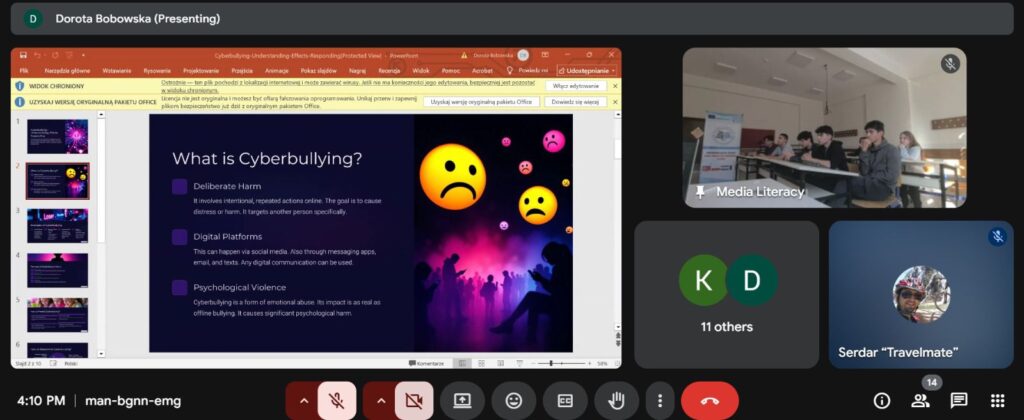
- Target Group and Participation
Main Participants:
Each partner institution selected 2 teachers and 5 students to actively participate in the webinar sessions.
Audience:
All teachers and students from the partner schools were invited as observers to join via livestream.
Target Group Description:
Young Individuals (15–19 years old): Gained awareness about ethical digital behavior, privacy, and sustainable technology use.
Educators and Trainers: Facilitated discussions, guided reflections, and modeled ethical digital citizenship practices.
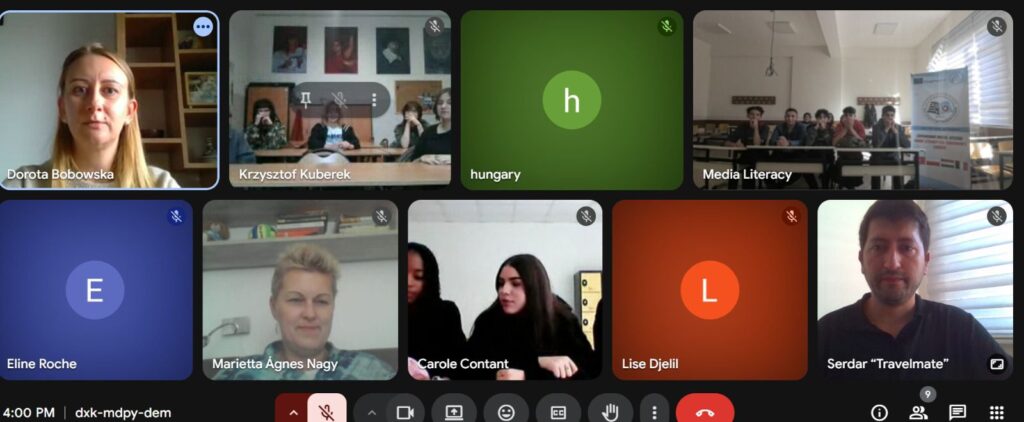
- Contribution to Project Objectives
The webinar directly supported the project’s objectives by:
Promoting Responsible Digital Behavior: Participants learned the value of respect, empathy, and ethical conduct in online interactions.
Addressing Cyberbullying and Misinformation: The event raised awareness about the risks of misinformation and strategies to maintain a safe digital environment.
Enhancing Digital Citizenship Skills: Students gained practical tools to become informed, responsible, and active digital citizens.
Fostering Environmental Awareness: The second day encouraged participants to reflect on the ecological footprint of their digital behavior and adopt greener habits.
Encouraging Critical Thinking: Participants analyzed how digital actions affect both society and the environment, improving media literacy and reflection.
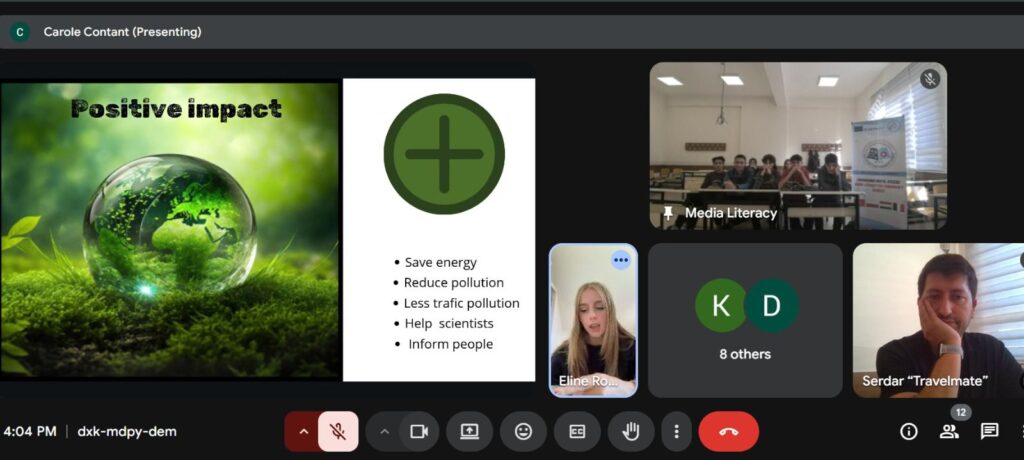
- Expected and Achieved Results
a. Enhanced Ethical Awareness:
Participants demonstrated a clearer understanding of online ethics, including respect, empathy, and privacy concerns.
b. Responsible Digital Behavior:
Students showed greater motivation to practice safe, positive, and inclusive online communication.
c. Reduction of Cyberbullying and Misinformation:
Through real-life examples and discussions, participants learned effective ways to identify and combat digital misinformation and online harassment.
d. Eco-Friendly Digital Practices:
Participants became more conscious of how to minimize digital waste and energy consumption in their daily routines.
e. Empowerment and Advocacy:
Students expressed readiness to share their new knowledge in their schools and local communities, acting as digital ethics ambassadors.
f. Cross-Cultural Collaboration:
Participants from Poland, France, Hungary, and Türkiye exchanged ideas and experiences, broadening their understanding of global digital and environmental issues.
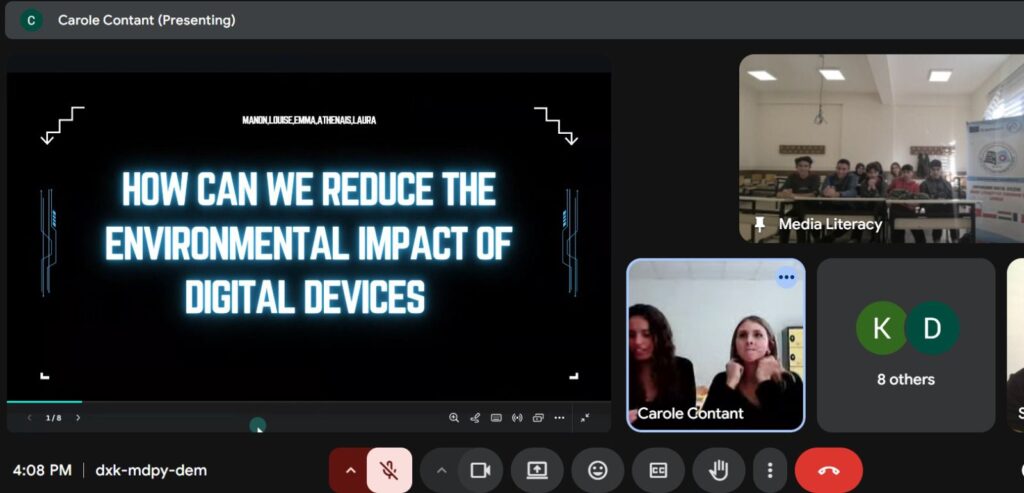
- Overall Evaluation
The activity successfully met its learning and engagement goals. The sessions combined interactive discussions, visual presentations, and collaborative brainstorming, making the experience engaging and reflective.
Feedback collected from participants showed a high satisfaction level—students appreciated learning about both ethical and environmental perspectives of digital life.
Teachers noted that the webinar strengthened students’ critical awareness, digital literacy, and intercultural sensitivity, aligning perfectly with the project’s mission to cultivate informed, responsible, and globally minded digital citizens.
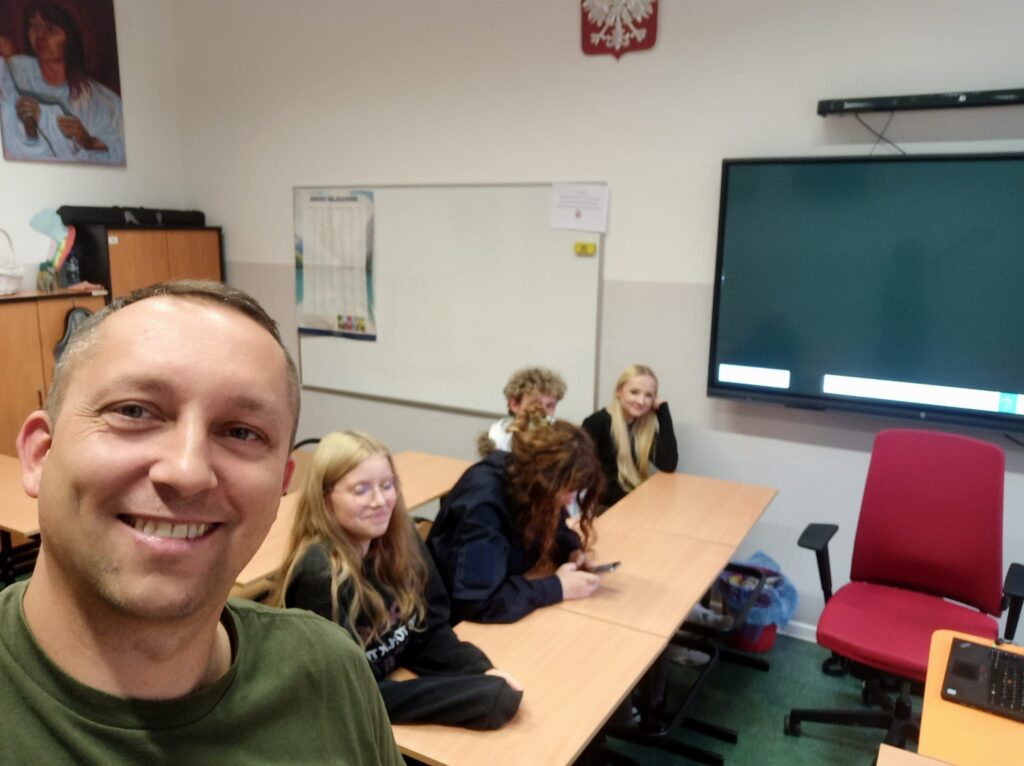
Funded by the European Union. Views and opinions expressed are however those of the author(s) only and do not necessarily reflect those of the European Union or the European Education and Culture Executive Agency (EACEA). Neither the European Union nor EACEA can be held responsible for them.


